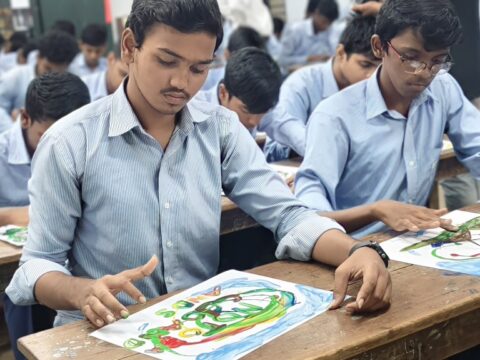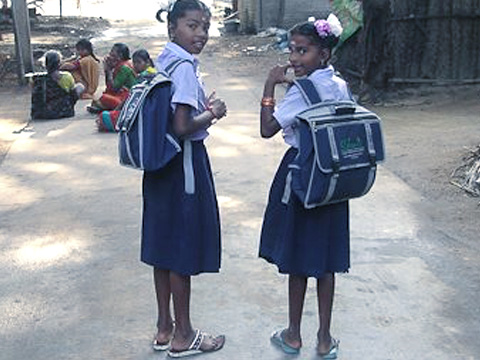Penned by Board Member Ms. Alo Pal
*Please note: The names mentioned in this blog have been altered to maintain privacy*
Valli was an alcoholic who wasn’t inclined to work, and her daughters lived in a shelter for destitute children run by a local organization (which later merged with Sharana in 2012). She abused her visitation rights by taking her two young daughters, Madhavi and Maithili, to beg with her on the beaches of Pondicherry. The family moved to a city about 60 km away, where she delivered two more children in quick succession (her husband desperately wanted a son). She eventually abandoned all four children, the youngest barely born, and eloped with her alcoholic partner. We do not know where she is or whether she is alive.
This story, however, is not about Valli. It is about Madhavi and Maithili, their two other siblings, and a single father, bogged down by circumstance, who hoped and strived for a better life for his children.
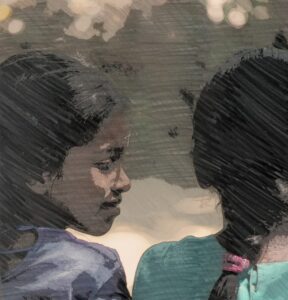
Keshaven is a mason who lived in a makeshift tent on the open grounds of the old AFT mills campus with his wife and daughters. As a caring father, he wanted his daughters to receive an education and lead productive, decent lives. His wife, on the other hand, was indolent and preferred to beg with their daughters. On his outreach, Manuel, then working with that organisation, and in charge of a shelter brought the two children to live there with Keshaven’s consent. In 2012, the organization merged with Sharana, and we inherited the shelter and all the children within it. However, the shelter model was inherently contrary to the model of reinsertion into extended families that Sharana followed for orphaned, abandoned, or neglected children. By 2014, Manuel and Sharana had managed to reintegrate all the children from the shelter into extended families with Sharana’s continued support or enroll them in boarding schools. This was when Keshaven decided to move to a city two hours away from Pondicherry, where better job opportunities were available.
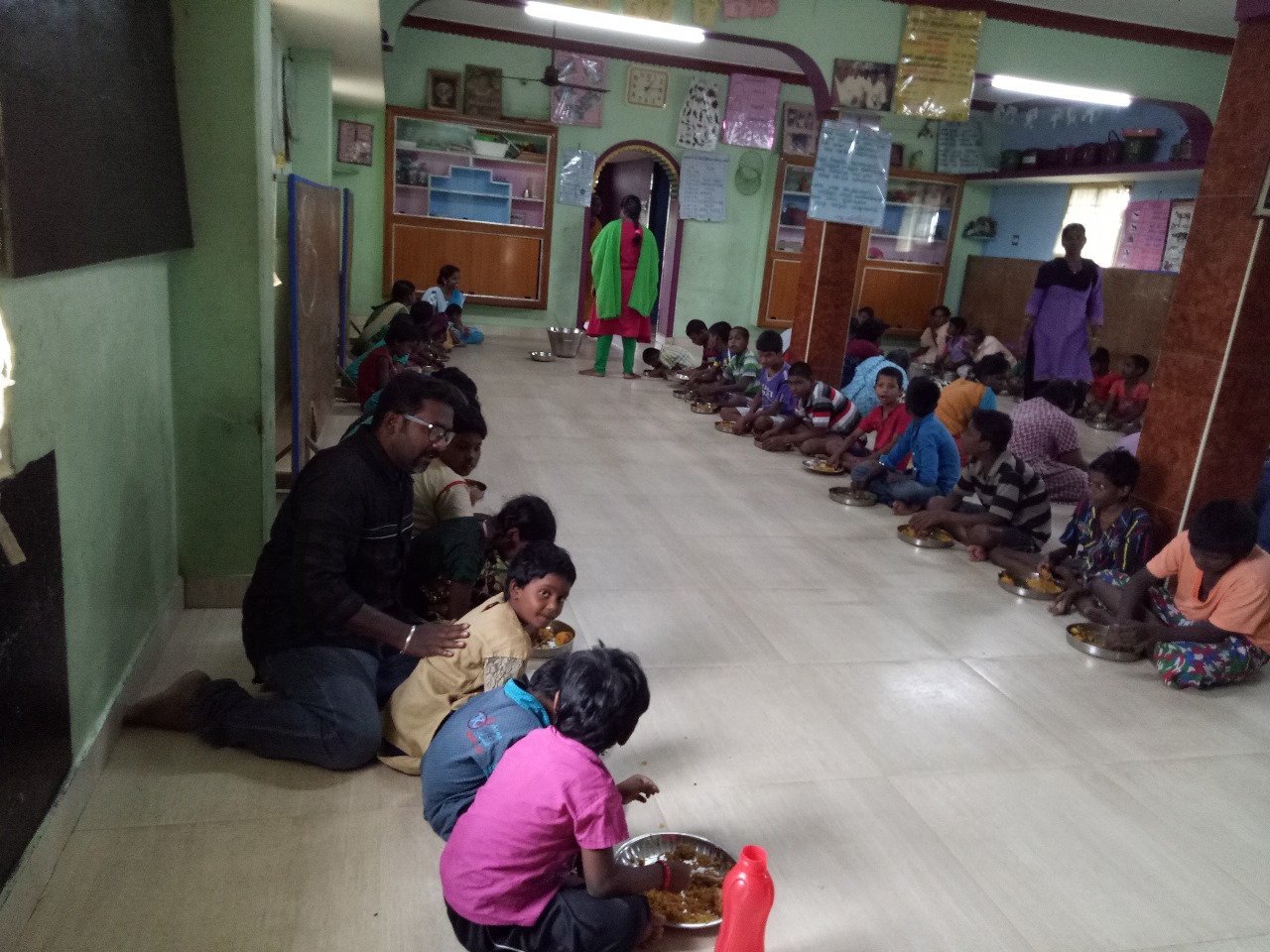
The shelter
Sharana and Manuel followed up their outreach with regular visits to the city where Keshaven had moved, providing considerable material support. The two older children were enrolled in a school near their new home. Finally, Keshaven, who resented his wife for using their children to beg, was able to see them go to school. Around 2016, he began traveling for better work opportunities. During this time, his wife eloped with her lover, leaving behind two infants. This immediately restricted Keshaven’s movements and impacted his income.On a visit to the school, Manuel explained the family situation to the teachers. By this time three girls were enrolled, all of them bright serious students, and the school authorities were kind and empathetic and fed the children and kept them. The infant son was supervised during playtime. This enabled him to work better.
Heavy rains and floods in 2017 damaged their hut. Sharana immediately intervened, arranging for the family to be temporarily accommodated in the school, which had closed due to the rains, but also provided food and clothing. But soon, the rains subsided, and the school was set to reopen. Sharana reached out to Mission Bambini, a long-standing and conscientious donor, to release ₹60,000. With the funds provided, a brick house with a tin roof was built for the family.
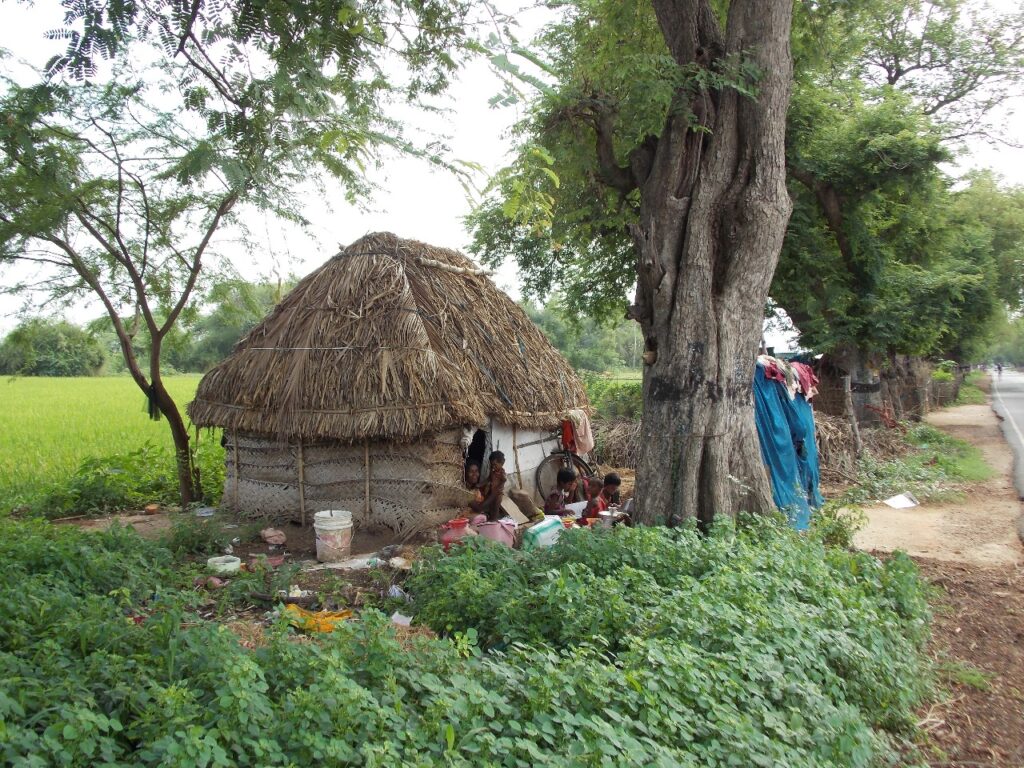
Old house
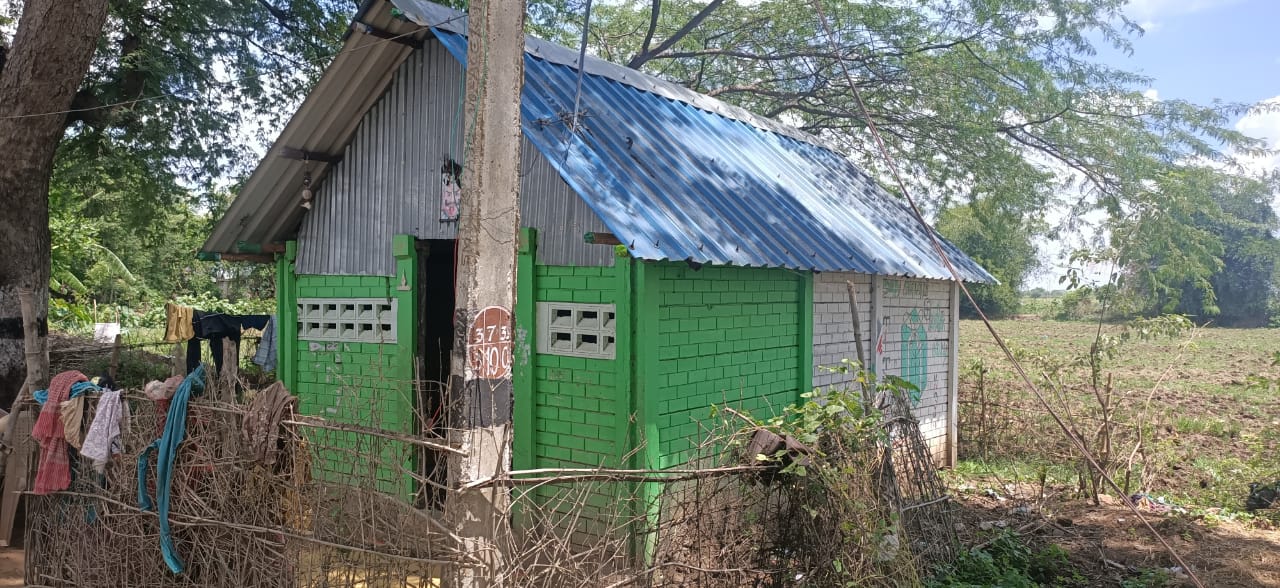
New house
In 2019, Keshaven resumed travel for work, leaving the house in the care of his older girls. Deeming this unsafe, Manuel approached the local Child Welfare Committee (CWC) for help. The CWC referred the four children to live in a home operated by a trust and attend school nearby. Sharana continued to provide material support.
But since he was earning better now and the children were well fed and secure in a home and going to school, why then did Sharana have to continue providing material support in addition to school and education outreach? This was because Keshaven’s mild drinking habits had turned into an addiction, which, in turn, affected his health and quickly reduced his productivity. On a follow-up in 2022, he remained resolute in his desire for his children to pursue their education and seize opportunities for a better life. By 2023, as his health deteriorated, this devoted father—who had long worked to keep his children off the streets and in school—began urging his daughters to leave the home and care for him. The older one, he believed, had studied enough to secure a job, while the younger one could manage the home and care for him. This has become the latest challenge in Manuel’s outreach—managing an ailing, inebriated alcoholic ranting about losing his children to Sharana and the home. Manuel waited for moments of sobriety and took the opportunity to reduce material help to make Keshaven aware that he had to get a grip on his life to provide for his children himself materially. With failing health and a mind clouded by addiction, he had moments of intense insecurity, convinced that he has lost his children. Handling him and his threats to pull his children out of the home is an ongoing effort.
The home arranged by the Tamil Nadu CWC for the children was run by a trust that cares for mentally challenged children. They also manage old age homes. Thanks to this arrangement, Madhavi, Maithili, and the two other siblings had the wonderful opportunity to stay close and grow together. During a recent outreach, Manuel and Vadivu observed how the staff at the home had come to rely on the children to help manage the others who were mentally challenged. They had grown into capable, responsible, and compassionate young girls who had naturally developed into effective support staff, helping to manage the other children with remarkable effectiveness.
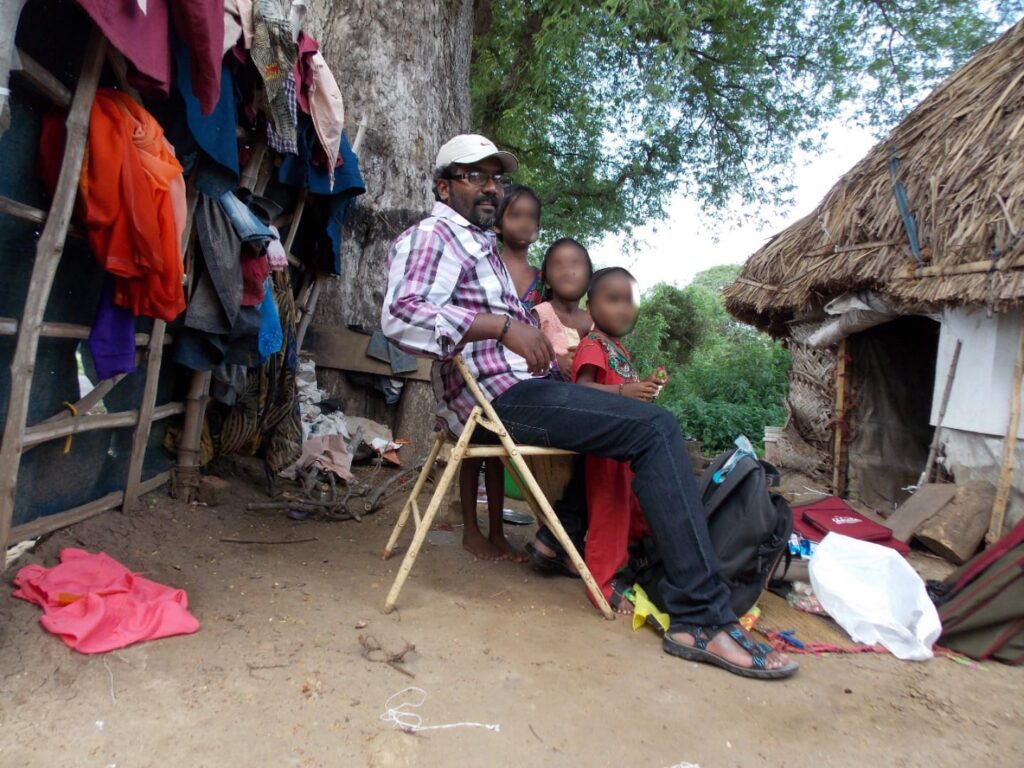
Mr. Manuel with Madhavi, Maithili and their sister
Madhavi, now 17, is preparing to take her 12th-grade exams and aspires to become a nurse. Meanwhile, Maithili, 15, is gearing up for her 11th-grade exams with the dream of becoming a teacher. While it is true that those who run the home have come to depend on Madhavi and Maithili to run the place and help the other children Sharana has fueled in them sufficient confidence and courage to inspire them to dream and pursue their goals in harmony with the current arrangement. Sharana has always been their safety net, and they know it.
What has this logistically challenging, continuous monitoring and outreach achieved? Four more children not only rescued from the streets but four more children to be added shortly to the educated and skilled workforce of India.









